| Listing 1 - 10 of 16 | << page >> |
Sort by
|
Book
ISBN: 9282826007 Year: 1998 Publisher: Luxembourg Office for official publications of the European communities
Abstract | Keywords | Export | Availability | Bookmark
 Loading...
Loading...Choose an application
- Reference Manager
- EndNote
- RefWorks (Direct export to RefWorks)
Adult education. Lifelong learning --- European Union --- Vocational education --- Educational innovations --- Enseignement professionnel --- Enseignement --- Innovations --- Community Action Programme for Education and Training for Technology. --- Eurotecnet (Program) --- FORCE Programme (European Commission) --- LINGUA (Organisation) --- PETRA (Program) --- LINGUA (Organization) --- Eurotecnet (Programme) --- Community Action Programme for Education and Training for Technology --- -Vocational education --- -Education, Vocational --- Vocational training --- Work experience --- Education --- Technical education --- Innovations, Educational --- Technological change in education --- Educational planning --- Educational change --- Educational technology --- Technological innovations --- Experimental methods --- Programme Petra --- EU PETRA (Program) --- EC PETRA (Program) --- PETRA Vocational Training Programme --- Commission of the European Communities. --- European Commission. --- PETRA II (Program) --- PETRA I (Program) --- Leonardo da Vinci (Program) --- Lingua Programme (Commission on the European Communities) --- ECP LINGUA --- European Coooperation Programme LINGUA --- Formation continue en Europe (Program) --- FORCE (Program : European Commission) --- FORCE (Program : Commission of the European Communities) --- COMETT (Organization) --- Programme COMETT --- COMETT-Programm --- COMETT Programme --- -Community Action Programme for Education and Training for Technology --- European Cooperation Programme LINGUA --- FORMATION PROFESSIONNELLE --- EUROPE
Book
ISBN: 9681654684 2821819358 2821827970 Year: 1998 Publisher: México, D.F. : Centro Francés de Estudios Mexicanos y Centroamericanos : Fondo de Cultura Económica,
Abstract | Keywords | Export | Availability | Bookmark
 Loading...
Loading...Choose an application
- Reference Manager
- EndNote
- RefWorks (Direct export to RefWorks)
Entre las últimas décadas del siglo xviii y las primeras del xix, el mundo iberoamericano experimentó su mayor mutación cultural desde la Conquista. Triunfan entonces concepciones radicalmente nuevas -revolucionarias- sobre la sociedad y la política y, con ellas, prácticas sociales inéditas que van a configurar un nuevo espacio público. Estas profundas mutaciones trastornan el antiguo espacio público: las maneras que los hombres tenían de relacionarse y de comunicarse entre sí y con sus autoridades. Implícita o explícitamente aparece también entonces la voluntad, a veces abrupta, de transformar el heterogéneo público del Antiguo Régimen -católico, corporativo y monárquico- en un pueblo liberal, individualista y republicano. Transformaciones tan radicales no podían imponerse de golpe y enteramente; por eso las permanencias, las resistencias y las adaptaciones son en este campo tan importantes como las novedades y las rupturas. A unas y otras están dedicados los capítulos de este libro. Algunos estudian las prácticas individuales o colectivas vinculadas a la libertad de imprenta, los periódicos y la lectura, las formas democráticas de sociabilidad, la formación de la opinión pública. Otros muestran, al contrario, cómo las "costumbres"anteriores a la mutación de los años 1810 y 1820, lejos de desaparecer, subsisten en una compleja y ambigua hibridación con las prácticas modernas. Medios de comunicación tan concretos como el pasquín, el rumor o el repique de campanas; formas de movilización codificadas y ordenadas por valores antiguos; las plazas y calles como espacios muy concretos de intercambio sobreviven victoriosamente a la aparición de la información impresa y ala difusión de nuevas formas de sociabilidad cultural y política. Otros, en fin, ponen de manifiesto la paradójica marginación popular que lleva consigo la afirmación de la nueva noción de lo público.
Social change --- Political participation --- History. --- Latin America --- Social life and customs. --- Citizen participation --- Community action --- Community involvement --- Community participation --- Involvement, Community --- Mass political behavior --- Participation, Citizen --- Participation, Community --- Participation, Political --- Political activity --- Political behavior --- Political rights --- Social participation --- Political activists --- Politics, Practical --- Change, Social --- Cultural change --- Cultural transformation --- Societal change --- Socio-cultural change --- Social history --- Social evolution --- Iberoamérica
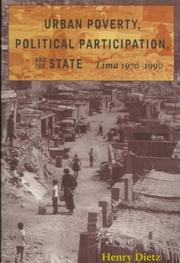
ISBN: 0822956675 0822971933 Year: 1998 Publisher: Pittsburgh : University of Pittsburgh Press,
Abstract | Keywords | Export | Availability | Bookmark
 Loading...
Loading...Choose an application
- Reference Manager
- EndNote
- RefWorks (Direct export to RefWorks)
Poor --- Political participation --- Political activity --- Citizen participation --- Community action --- Community involvement --- Community participation --- Involvement, Community --- Mass political behavior --- Participation, Citizen --- Participation, Community --- Participation, Political --- Political behavior --- Political rights --- Social participation --- Political activists --- Politics, Practical --- Disadvantaged, Economically --- Economically disadvantaged --- Impoverished people --- Low-income people --- Pauperism --- Poor, The --- Poor people --- Persons --- Social classes --- Poverty --- Economic conditions --- Lima --- Peru
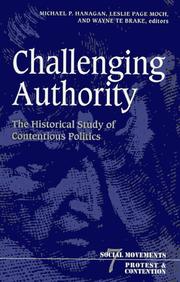
ISBN: 0816631093 0816631085 Year: 1998 Volume: 7 Publisher: Minneapolis, Minn. University of Minnesota Press
Abstract | Keywords | Export | Availability | Bookmark
 Loading...
Loading...Choose an application
- Reference Manager
- EndNote
- RefWorks (Direct export to RefWorks)
Attitudes politiques --- Bewegingen [Sociale ] --- Community action --- Community involvement --- Community participation --- Comportement politique --- Inspraak in het beleid --- Involvement [Community ] --- Mass political behavior --- Mouvements sociaux --- Overlegcultuur --- Participatie [Politieke ] --- Participation [Community ] --- Participation [Political ] --- Participation politique --- Participation à la politique --- Participation à la vie politique --- Political behavior --- Political participation --- Politieke participatie --- Politique [Participation à la ] --- Politisation --- Revoluties --- Revolutions --- Révolutions --- Social movements --- Sociale bewegingen --- Political participation. --- Revolutions. --- Social movements. --- Community organization --- Political sociology
Book
ISBN: 270212867X 9782702128671 Year: 1998 Publisher: Paris Calmann-Lévy
Abstract | Keywords | Export | Availability | Bookmark
 Loading...
Loading...Choose an application
- Reference Manager
- EndNote
- RefWorks (Direct export to RefWorks)
Democracy --- Individualism --- Political participation --- -Individualism --- -Political participation --- -Citizen participation --- Community action --- Community involvement --- Community participation --- Involvement, Community --- Mass political behavior --- Participation, Citizen --- Participation, Community --- Participation, Political --- Political activity --- Political behavior --- Political rights --- Social participation --- Political activists --- Politics, Practical --- Economics --- Equality --- Political science --- Self-interest --- Sociology --- Libertarianism --- Personalism --- Persons --- Self-government --- Representative government and representation --- Republics --- -Democracy --- Citizen participation --- Democracy - France --- Individualism - France --- Political participation - France
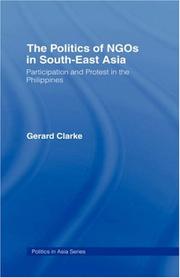
ISBN: 0415171407 9786610463343 1280463341 0203025466 9780203025468 6610463344 9780415171403 9781134695300 9781134695348 9781134695355 Year: 1998 Publisher: London New York Routledge
Abstract | Keywords | Export | Availability | Bookmark
 Loading...
Loading...Choose an application
- Reference Manager
- EndNote
- RefWorks (Direct export to RefWorks)
The Politics of NGOs in Southeast Asia traces the history of the emergence of NGOs in the Philippines and southeast Asia and the political factors which encouraged this. The main focus is on the period from the mid-1990s when NGOs first became a notable force in the region. It documents the complex relations between NGOs and other political actors including the state, organised religion, foreign donors, the business sector and underground insurgent groups and their impact on NGO strategy.
Non-governmental organizations --- Political participation --- Philippines --- Southeast Asia --- Politics and government --- Citizen participation --- Community action --- Community involvement --- Community participation --- Involvement, Community --- Mass political behavior --- Participation, Citizen --- Participation, Community --- Participation, Political --- Political activity --- Political behavior --- INGOs (International agencies) --- International non-governmental organizations --- NGOs (International agencies) --- Nongovernmental organizations --- Organizations, Non-governmental (International agencies) --- Private and voluntary organizations (International agencies) --- PVOs (International agencies) --- Political rights --- Social participation --- Political activists --- Politics, Practical --- International agencies --- Nonprofit organizations
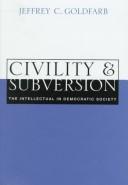
ISBN: 0511891369 0511581718 0511003218 9780511003219 0521622204 0521627230 9780511581717 9780521622202 9780521627238 9780511891366 Year: 1998 Publisher: Cambridge Cambridge University Press
Abstract | Keywords | Export | Availability | Bookmark
 Loading...
Loading...Choose an application
- Reference Manager
- EndNote
- RefWorks (Direct export to RefWorks)
This 1998 book provides a sophisticated alternative to existing accounts of the role of the intellectual in modern democracy. Arguing that society suffers from a systemic deliberation deficit, Jeffrey Goldfarb explores the potential of the intellectual as democratic agent, at once civilizing political contestation and subverting complacent consensus. The sentimental Leftist view of the intellectual as guardian of democracy and the demonising Rightist view of the intellectual as obstructor of progress, are both shown to be flawed. Instead, intellectuals are portrayed as special kinds of 'strangers' who pay careful attention to their critical faculties, equipping them uniquely to address the most pressing issues of today. Professor Goldfarb deploys classical and contemporary social theory to analyse a diverse set of intellectuals in action, from Socrates in fifth-century Athens to Malcolm X and Toni Morrison in twentieth-century America, and, drawing on personal acquaintance, the political dissidents in Communist and post-Communist Central Europe.
Intellectuals --- Political participation. --- Democracy. --- Self-government --- Political science --- Equality --- Representative government and representation --- Republics --- Citizen participation --- Community action --- Community involvement --- Community participation --- Involvement, Community --- Mass political behavior --- Participation, Citizen --- Participation, Community --- Participation, Political --- Political activity --- Political behavior --- Political rights --- Social participation --- Political activists --- Politics, Practical --- Intelligentsia --- Persons --- Social classes --- Specialists --- Political activity. --- Attitudes. --- Démocratie --- Intellectuels --- Participation politique --- Attitudes --- Activité politique --- Political sociology --- Political participation --- Democracy --- Intellectuals - Attitudes. --- Social Sciences --- Sociology

ISBN: 0299158543 Year: 1998 Publisher: Wisconsin The University of Wisconsin Press
Abstract | Keywords | Export | Availability | Bookmark
 Loading...
Loading...Choose an application
- Reference Manager
- EndNote
- RefWorks (Direct export to RefWorks)
De nucleaire industrie probeerde "peaceful atoms" te verkopen maar de bevolking van Californië ging niet op het aanbod in. Dit boek vertelt hoe de burgers van Calfornië, van kleine afgelegen plaatsen tot in de voorsteden van Los Angeles, zich verzetten tegen dreiging van kernenergie en hierdoor niet alleen de anit-kernenergiebeweging hervormden maar ook het overheidsbeleid grondig beïnvloedden. De auteur maakt duidelijk dat het niet zozeer de institutionele lobbyisten of economische belangen waren die maakten dat het beleid werd gewijzigd maar wel de acties van de "grassroots". Hij wijst er op dat de welvaart en het gestegen opleidingsniveau na de Tweede Wereldoorlog een publieke opinie creëerde die meer persoonlijke vrijheid wenstte en een veiliger, zuiverder milieu. Deze waarden droegen de anti-kernenergie beweging.
839 Technologie en infrastructuur --- 843 Middenveld --- 858.1 Politiek geweld --- 882.4 Noord-Amerika --- Antinuclear movement --- Nuclear energy --- Political participation --- Citizen participation --- Community action --- Community involvement --- Community participation --- Involvement, Community --- Mass political behavior --- Participation, Citizen --- Participation, Community --- Participation, Political --- Political activity --- Political behavior --- Political rights --- Social participation --- Political activists --- Politics, Practical --- Atomic energy --- Atomic power --- Energy, Atomic --- Energy, Nuclear --- Nuclear power --- Power, Atomic --- Power, Nuclear --- Force and energy --- Nuclear physics --- Power resources --- Nuclear engineering --- Nuclear facilities --- Nuclear power plants --- Anti-nuclear movement --- Antinuclear protest movement --- Nuclear freeze movement --- Protest movement, Antinuclear --- Social movements --- Nuclear disarmament --- History --- Government policy&delete& --- California --- Government policy
Book
ISBN: 9062830536 Year: 1998 Publisher: Bussum Coutinho
Abstract | Keywords | Export | Availability | Bookmark
 Loading...
Loading...Choose an application
- Reference Manager
- EndNote
- RefWorks (Direct export to RefWorks)
Democracy. --- Municipal government --- Political participation. --- Lokaal bestuur --- Gemeente. --- Democracy --- Political participation --- #SBIB:012.IO --- #SBIB:324H50 --- #SBIB:35H1351 --- #SBIB:35H510 --- #SBIB:35H6011 --- #SBIB:AANKOOP --- Citizen participation --- Community action --- Community involvement --- Community participation --- Involvement, Community --- Mass political behavior --- Participation, Citizen --- Participation, Community --- Participation, Political --- Political activity --- Political behavior --- Political rights --- Social participation --- Political activists --- Politics, Practical --- Self-government --- Political science --- Equality --- Representative government and representation --- Republics --- Politieke participatie en legitimiteit (referenda, directe democratie, publieke opinie...) --- Organisatie en beleid: lokale besturen: Nederland --- Openbaarheid van bestuur, ombudsdienst, .. --- Bestuur en beleid: nationale en regionale studies: Nederland --- Openbaarheid van bestuur, ombudsdienst, . --- Openbaarheid van bestuur, ombudsdienst,
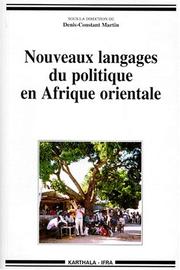
ISBN: 286537811X 9782865378111 Year: 1998 Volume: *65 Publisher: Paris Karthala
Abstract | Keywords | Export | Availability | Bookmark
 Loading...
Loading...Choose an application
- Reference Manager
- EndNote
- RefWorks (Direct export to RefWorks)
Political systems --- Political sociology --- Tanzania --- Kenya --- Uganda --- East Africa --- Democracy --- Political culture --- Démocratie --- Culture politique --- Africa, Eastern --- Afrique orientale --- Politics and government --- Politique et gouvernement --- Political participation --- Démocratie --- Citizen participation --- Community action --- Community involvement --- Community participation --- Involvement, Community --- Mass political behavior --- Participation, Citizen --- Participation, Community --- Participation, Political --- Political activity --- Political behavior --- Political rights --- Social participation --- Political activists --- Politics, Practical --- Africa, East --- Kīnyā --- Kenia --- Kenii︠a︡ --- Chenia --- Cenia --- Government of Kenya --- Republic of Kenya --- GOK --- Jamhuri ya Kenya --- Kenya Colony and Protectorate --- Colony and Protectorate of Kenya --- ケニア --- קניה --- Ḳenyah --- Quênia --- كينيا --- Kīniyā --- 肯尼亚 --- Kenniya --- Кения --- East Africa Protectorate --- Politics and government. --- Africa --- Politics --- Participation politique --- Communication en politique --- Tanzanie --- Ouganda --- 1990-.... --- 1960-....
| Listing 1 - 10 of 16 | << page >> |
Sort by
|

 Search
Search Feedback
Feedback About UniCat
About UniCat  Help
Help News
News